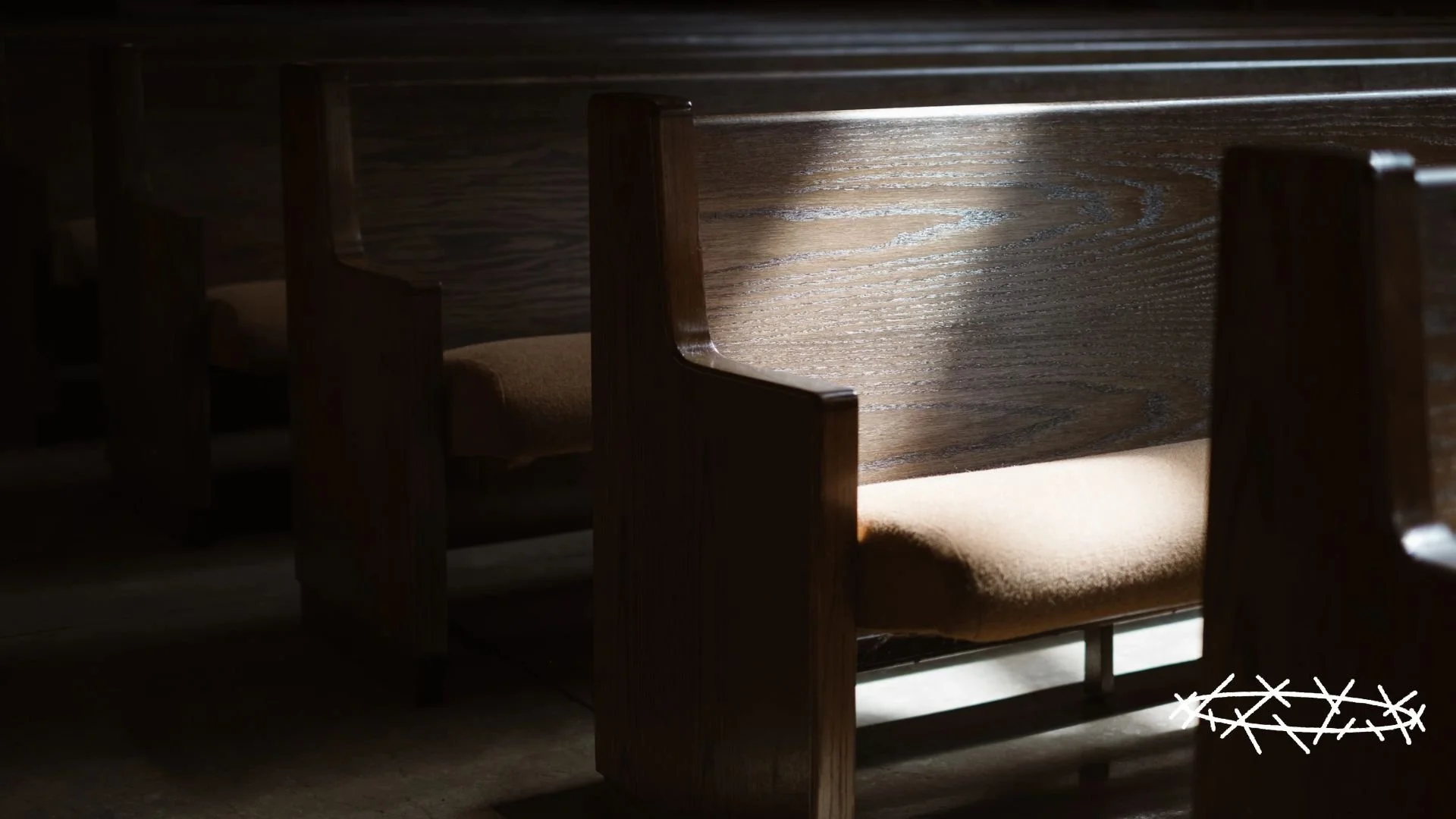Sheer, Maundy, or Covenant Thursday?
March 28, 2024 | By Gavin Susantio YDS ‘25
image description: sunlight streams in on battered church pews
Holy Thursday is known as “Maundy Thursday,” “Covenant Thursday,” and “Sheer Thursday,” among other things. Some of these names are unusual, some are unsurprising, but what do they mean?
I. MAUNDY THURSDAY
“Maundy” comes from the Latin mandatum, which means “command.” [1] After Christ washed the feet of the twelve disciples, He said, Mandatum novum do vobis ut diligatis invicem sicut dilexi vos, which translates to: “A new commandment I give to you, that you love one another; as I have loved you, so that you also love one another” (John 13:34).
Love defines God, and in the context of Maundy Thursday, Love is tangible and is the very supper of the New Covenant.
II. COVENANT THURSDAY
In the Old Testament, blood covenants are promises. God made a blood covenant with Abraham in Genesis 15; David makes a blood covenant with Jonathan in II Samuel 9; and now Christ makes a blood covenant with us in Luke 22.
In this covenant, mandated in the last supper, the only instance the phrase “New Testament” (i.e., “New Covenant”) appears in the Scriptures is in the sentence “this cup that is poured out for you is the New Covenant in My Blood” (Luke 22:20). And blood symbolizes life in the Old Testament, where an animal would die on our behalf and where bleeding causes their death and our atonement.
In the Orthodox Church, one recites this communion hymn during the liturgy of Holy Thursday:
Of Thy Mystical Supper, O Son of God, accept me today as a communicant; for I will not speak of Thy Mystery to Thine enemies, neither will I give Thee a kiss like Judas. But like the Thief will I confess Thee: Remember me, O Lord, in Thy Kingdom. [2]
Christ came to love others, and He experienced betrayal in return. On that night of betrayal, He asked us to “do this in remembrance of me” before He, as our king, died on the cross. And in turn, we ask Him, like the thief on the cross, to remember us in His Kingdom.
Such a day reminds us that in communion, we are grafted into the New Passover Lamb. Christ gives His whole self, such that we are not only to remember Him, nor to know Him, but also to consume Him. His Body becomes ours, and His Blood becomes ours. So, we share the same Blood that binds us more profoundly than familial blood ever could.
III. SHEER THURSDAY
Finally, “sheer” means bright or clean in the context of being free from guilt or becoming blameless, and it corresponds to the washing of the altars. [3] That is, the altar where the celebrant would consecrate the bread and wine as the Body and Blood of Christ.
In the early church, Christians were accused of cannibalism. But we are to eat the gods. In Exodus 32, the Israelites worshiped the golden calf. It was their god, but not for long. Moses took the calf, “burned it with fire and grounded it to powder and scattered it on the water and made the Israelites drink it” (Exodus 32:20). Moses instructed the people to eat and drink your god.
So, let us eat and drink, as we’ll commemorate the crucifixion and resurrection of our God in the coming days, which we’ll always remember when we consume His Body and Blood of the New Testament. Let this blood make us white.
References:
[1] Nick Batzig. “What Is Maundy Thursday?” https://www.ligonier.org/learn/articles/what-is-maundy-thursday
[2] Antiochian Orthodox Christian Archdiocese of North America. “Prayers of Preparation Before Holy Communion.” http://ww1.antiochian.org/orthodox-prayers/preparation-holy-communion#:~:text=Of%20thy%20Mystic%20Supper%2C%20O,O%20Lord%2C%20in%20thy%20Kingdom.
[3] F. L. Cross and E. A. Livingstone. The Oxford Dictionary of the Christian Church, 3 ed. “Sheer Thursday.” https://www.oxfordreference.com/display/10.1093/oi/authority.20110803100500571

